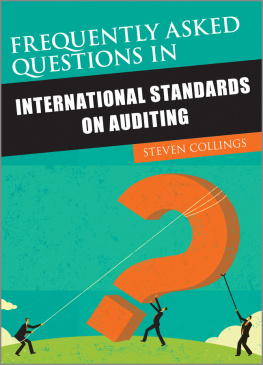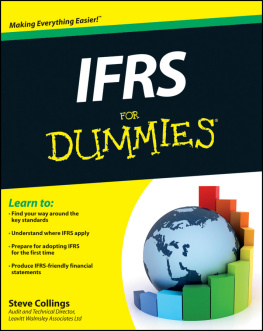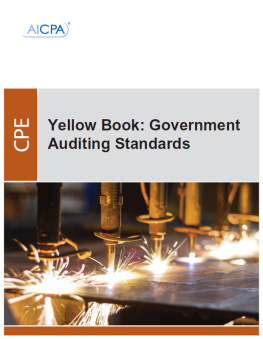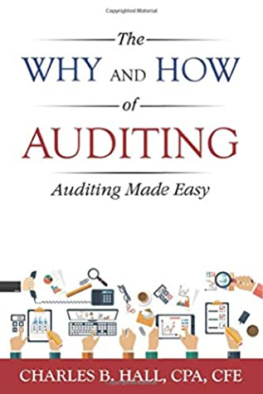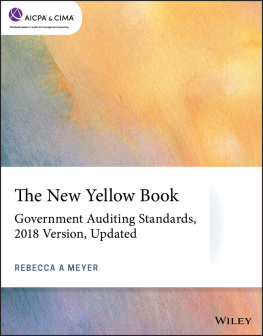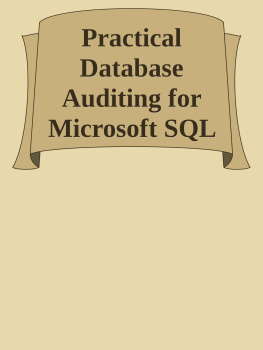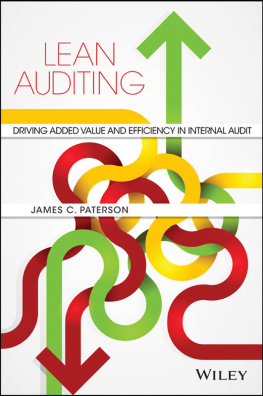
This edition first published 2014
2014 Steven John Collings
Registered office
John Wiley & Sons Ltd, The Atrium, Southern Gate, Chichester, West Sussex, PO19 8SQ, United Kingdom
For details of our global editorial offices, for customer services and for information about how to apply for permission to reuse the copyright material in this book please see our website at www.wiley.com.
All rights reserved. No part of this publication may be reproduced, stored in a retrieval system, or transmitted, in any form or by any means, electronic, mechanical, photocopying, recording or otherwise, except as permitted by the UK Copyright, Designs and Patents Act 1988, without the prior permission of the publisher.
Wiley publishes in a variety of print and electronic formats and by print-on-demand. Some material included with standard print versions of this book may not be included in e-books or in print-on-demand. If this book refers to media such as a CD or DVD that is not included in the version you purchased, you may download this material at http://booksupport.wiley.com. For more information about Wiley products, visit www.wiley.com.
Designations used by companies to distinguish their products are often claimed as trademarks. All brand names and product names used in this book are trade names, service marks, trademarks or registered trademarks of their respective owners. The publisher is not associated with any product or vendor mentioned in this book.
Limit of Liability/Disclaimer of Warranty: While the publisher and author have used their best efforts in preparing this book, they make no representations or warranties with the respect to the accuracy or completeness of the contents of this book and specifically disclaim any implied warranties of merchantability or fitness for a particular purpose. It is sold on the understanding that the publisher is not engaged in rendering professional services and neither the publisher nor the author shall be liable for damages arising herefrom. If professional advice or other expert assistance is required, the services of a competent professional should be sought.
Library of Congress Cataloging-in-Publication Data is available
A catalogue record for this book is available from the British Library.
ISBN 9781118765418 (paperback) ISBN 9781118765388 (ebk)
ISBN 9781118765401 (ebk) ISBN 9781118933909 (obk)
All extracts and quotes from the Handbook of International Quality Control, Auditing, Review, Other Assurance, and Related Services Pronouncements 2013 Edition of the International Auditing and Assurance Standards Board (IAASB), published by the International Federation of Accountants (IFAC) in September 2013, are used with permission of IFAC.
About the Author
Steve Collings, FMAAT FCCA is the audit and technical partner at Leavitt Walmsley Associates Ltda firm of Chartered Certified Accountants based in Sale, Manchester in the United Kingdom. Steve trained and qualified with the Association of Accounting Technicians in 2000 and then went on to qualify as an Associate Chartered Certified Accountant (ACCA) in 2005. In 2010 he became a Fellow of the Association of Chartered Certified Accountants (FCCA). He also holds the ACCA's Diploma in IFRS and International Standards on Auditing (both of which he obtained in 2008), Certificates in IFRS and International Standards on Auditing and holds the Certificate in IFRS for SMEs which he obtained in 2012.
Steve specialises in financial reporting and auditing issues and has been writing professionally for several years. He is an Editorial Board member for Wiley Insight IFRS and the financial reporting editor for AccountingWEB.co.uk. In addition, Steve lectures around the UK on financial reporting, auditing and solicitors accounts rules. Much of Steve's work can be seen on his personal website at www.stevecollings.co.uk.
Steve won Accounting Technician of the Year at the 2011 British Accountancy Awards. He won the Outstanding Contribution to the Accountancy Profession award from the Association of International Accountants in 2013.
Steve's other publications include:
- Interpretation and Application of International Standards on Auditing (Wiley 2011)
- IFRS For Dummies (Wiley 2012)
- Financial Accounting For Dummies (Wiley 2013)
- Corporate Finance For Dummies (Wiley 2013)
- Frequently Asked Questions in IFRS (Wiley 2013)
- Interpretation and Application of UK GAAP (Wiley 2014forthcoming)
Acknowledgements
Writing a book is a project which brings with it a whole host of challenges. Many people believe that the production of a book is a one-person project - this could not be further from reality! I am extremely fortunate in having a very strong and knowledgeable publishing team to have worked with on this title to bring it to market. I would like to offer my sincere thanks to Gemma Valler, Wiley's Associate Commissioning Editor, for all her support during the writing and production of this book. It is always a pleasure to work with Gemma!
Caroline Quinnell did an outstanding job as copy-editor to the manuscript and so deserves a huge amount of thanks for doing such a great job (on a fairly short schedule as well). The edits to the manuscript by Caroline prove her keen eye and attention to detail which are of paramount importance to any author.
As always I have to thank my co-director at Leavitt Walmsley Associates, Mr Les Leavitt FCCA, who always offers a tremendous amount of support when it comes to book projects and accommodates my deadlines in with forthcoming work projects. I would also like to thank Matt Jones at LWA for taking on additional work which allowed me to meet the deadlines for this book.
Special thanks go to Lisa Weaver, BA FCA, and author of Managing the Transition to IFRS-based Financial Reporting for writing the Foreword for this book. I would also like to thank Lisa Emery for her input into the technical edit of this book.
Family and friends play an important part as wellthey also take a keen interest in what I am writing next and it's thanks to you all for the support I receive when the pressure is on to hit deadlines.
Finally my thanks go to you, the reader, who has picked up this book. I sincerely hope you find it helpful and a good reference guide to the world of auditing. Keep it close to hand to guide you through complex issues to make sure you fully comply with the requirements of the ISAs.
Preface
The auditing profession has evolved considerably over the years and this has not only been due to well-publicised corporate disasters (such as Enron and Parmalat), but also because of the way in which business itself has evolved. Increased use of information technology has meant more computer-assisted audit techniques have been developed as well as the fast pace at which International Financial Reporting Standards (IFRS) are currently gathering. More companies around the world are adopting the use of IFRS meaning audit techniques have to deal with some radically different accounting treatments that national generally accepted accounting practice may allow (or disallow).
Accounting and auditing standards change on a frequent basis in attempts to improve and clarify their application. The last major overhaul by the International Auditing and Assurance Standards Board (IAASB) was the Clarity Project and the issuance of clarified International Standards on Auditing in October 2009 which became effective for audits commencing on or after 15 December 2009. Time does not stand still and accounting and auditing standards are amended, withdrawn and introduced as appropriate to cope with emerging issues. For example, at the time of writing this Preface, there were proposals issued by the IAASB to radically change the auditor's report so that more information is to be included within the report itself in order to give users a greater understanding of the risks faced by the business as well as how auditors have dealt with very subjective and controversial areas of an audit, such as going concern. These proposals are essentially reflective of the changing needs of users and given the recent economic crisis, the audit profession has had to change to meet these needs.
Next page
